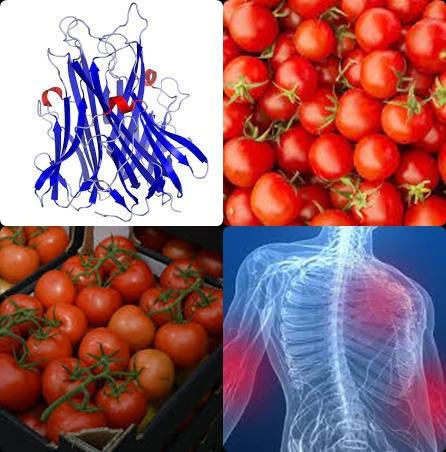
Objectives:
Inflammation is a major cause of chronic diseases. Several studies have investigated the effects of tomato intake on inflammatory biomarkers; however, the results are equivocal. Therefore, this review article has been conducted.
Does tomato intake have positive impact on inflammatory biomarkers in adults?
Study design:
This review article included 7 RCTs (8 treatment arms) with a total of 465 subjects.
Results and conclusions:
The investigators found that pooled effect size of articles indicated that tomato intake was not significantly effective on CRP [WMD = 0.13 mg/dL, 95% CI = -0.09 to 0.36, p = 0.23, I2 = 83.9%] and IL-6 [Hedges' g = -0.12, 95% CI = -0.36 to 0.13, p = 0.34, I2 = 0.0%] levels compared to the control group.
The investigators found that pooled effect size of articles indicated that tomato intake significantly reduced TNF-α [Hedges' g = -0.45, 95% CI = -0.76 to -0.13, p = 0.005, I2 = 0.0%] levels in adults.
The investigators concluded that tomato intake causally reduces TNF-α levels in adults. However, additional well-designed studies that include more diverse populations and longer duration are warranted.
Original title:
Effect of tomato consumption on inflammatory markers in health and disease status: A systematic review and meta-analysis of clinical trials by Widjaja G, Doewes RI, […], Aravindhan S.
Link:
https://pubmed.ncbi.nlm.nih.gov/35871957/
Additional information of El Mondo:
Find here more information/studies about RCTs/significant, and tomato intake.
Tumor necrosis factor alpha (TNF-α) is an inflammatory cytokine that is elevated in heart failure.